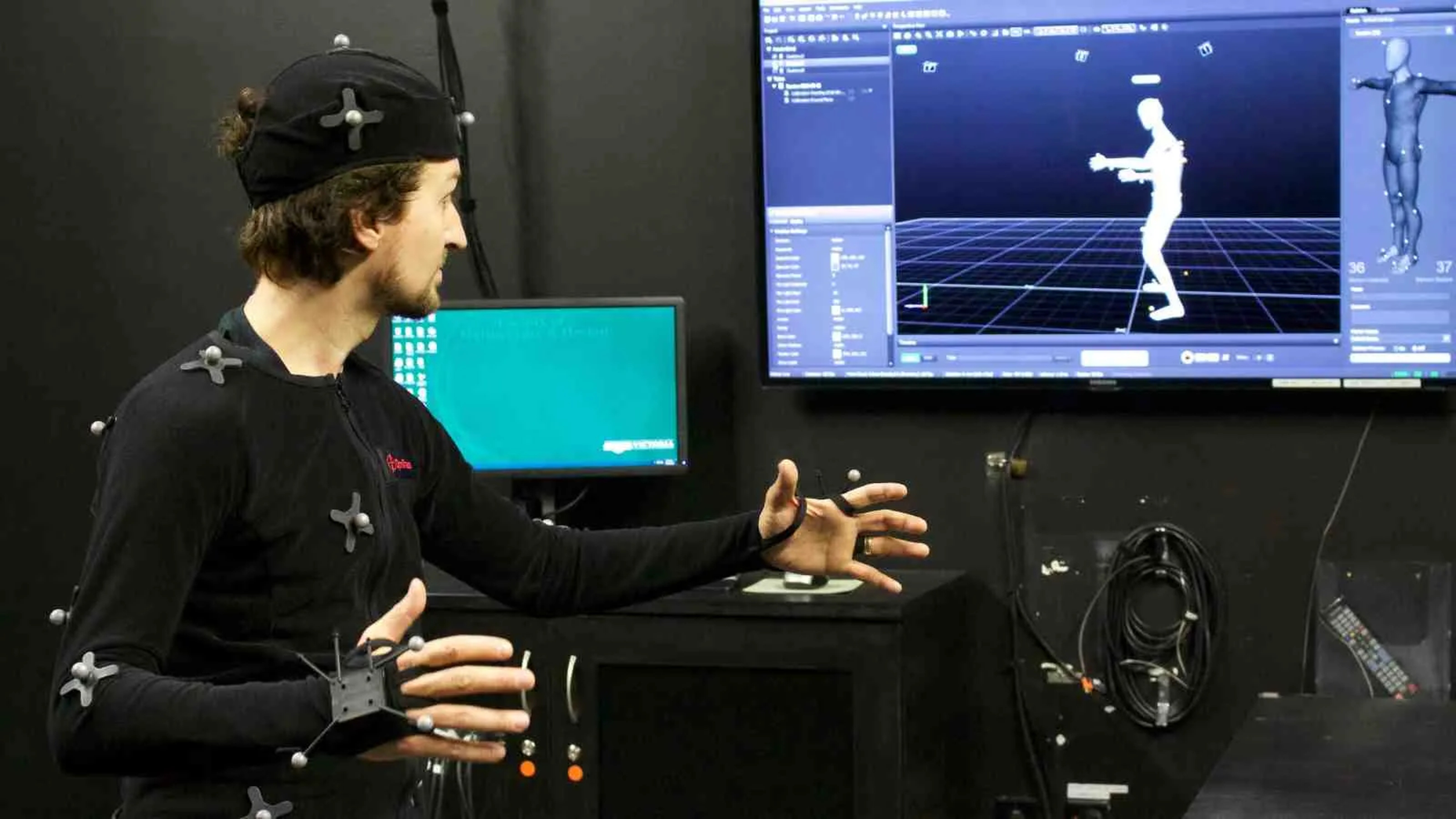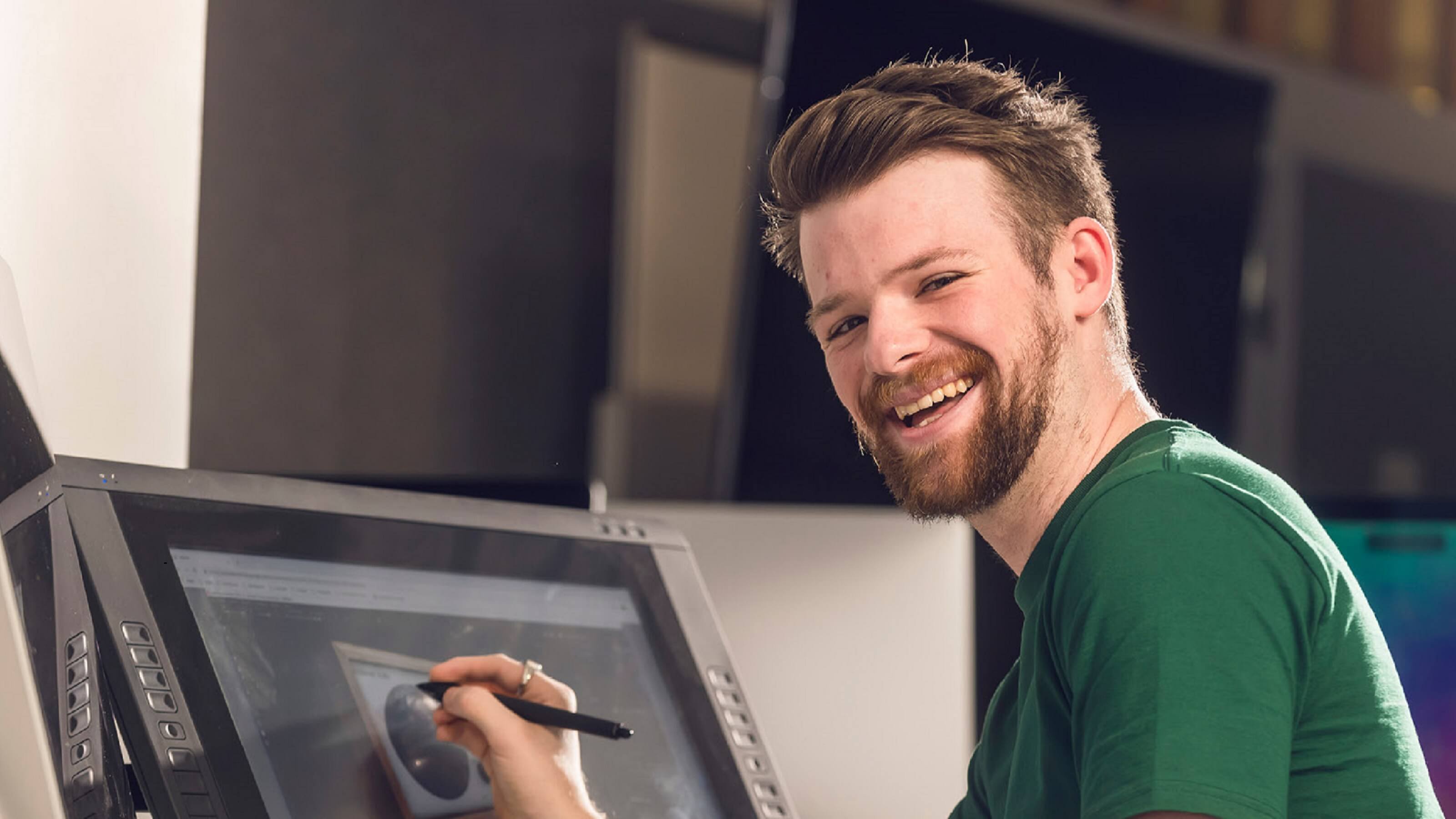
-
Apply by 23 Jun 2025 to start 7 Jul 2025
Tailor your design study path to what you care about. Learn to design in a rapidly changing world.
Design your own degree
Explore a range of design topics and develop your creative, critical, and design skills. Learn new techniques—ranging from hands-on making to high-tech virtual or digital production—using our range of cutting-edge tools, technologies, and facilities.
Draw on your unique lived experience, passion, and talent to develop your own design kaupapa. Discover how design can respond to the critical issues of sustainability, accessibility, and social justice. Explore how you can enrich people’s lives and experiences with innovative designs.
Whether you’re aiming for a specific career in design or still discovering your design passion, the BDI is right for you. You’ll explore a range of design subjects and shape your study path as your interests and confidence grow. You’ll graduate with specialised design skills and a unique portfolio of work—ready to make your mark on the world.

Download our handbook
Fill in a form to download our qualification handbook and find out more about your study options in Design Innovation.

Choosing your major
In the first year of your BDI, you’ll explore the foundational skills and knowledge that designers need in Aotearoa New Zealand—design thinking, design tools and techniques, and critical design history.
Although you choose a major when you apply to study the BDI, you have the flexibility to change direction as your interests and confidence grow. You will start to specialise in your major in your second year.
Build your degree
The Bachelor of Design Innovation offers eight majors:
Animation and Visual Effects—Pakiwaituhi me ngā Mariko Ataata
Bring stories to life on screen through animation, VFX, and virtual reality by blending creativity with technology.Communication Design—Hoahoa ā-Whakakōrero
Bring a fresh design perspective to surfaces, screens, and physical and virtual spaces, exploring topics like graphic design, typography, branding, illustration, and visual narrative.Design for Social Innovation—Hoahoa mō te Auahatanga ā-Papori
Design with kaitiakitanga and manaakitanga to respond to the critical issues facing our people and our changing environments through interdisciplinary design. You might design products, systems, or services.Fashion Design Technology—Hangarau Hoahoa ā-Kākahu
Learn skills in emerging technologies to create fashion designs that solve challenges and improve lives.Game Design—Hoahoa ā-Kēmu
Develop the design thinking and professional studio skills you need to create compelling games and work in creative industries.Industrial Design—Hoahoa ā-Ahumahi
Design and develop the physical objects or products that shape the world and our interactions.Interaction Design—Hoahoa ā-Pāhekoheko
Create digital systems and interfaces that improve aspects of human life.Media Design—Hoahoa ā-Arapāho
Explore the possibilities of emerging technologies before they enter the mainstream and consider how we can harness them.Special first-year requirements
If you want to major in one of the following subjects, there are specific courses that you’ll need to take in your first year:
- Animation and Visual Effects
- Game Design
- Fashion Design Technology.
Flexibility in your degree
The BDI allows you to study in more than one design discipline through your selection of majors and minors. You can also change your major or minor during your studies, if your interests take you in a new direction.
By selecting an interdisciplinary BDI, you can explore how different subjects intersect and create a unique portfolio that expands your career opportunities.
You may choose to add to your study with one of the following options:
- Double major—study two BDI majors at the same time, or add an ‘outside’ major from another undergraduate degree
- Minor—add a minor from the BDI to your study
- Conjoint degree—complete the BDI and another degree at the same time in a minimum of four years.
Cutting-edge facilities and equipment
During your study, you’ll have the opportunity to use the latest design technology in purpose-built workshops and studios. You’ll have access to:
- 3D printers
- VR headsets
- motion-capture equipment
- a fashion studio with state-of-the-art machines and equipment
- specialist design workshops with laser cutters, robots, CNC routers, wood working machines and tools, a paint booth
- Mac and PC computer labs with a range of cutting-edge software supporting animation, VFX, game engines, 3D modelling, digital design (including the Adobe Suite), AI, interaction, and coding
- a design resource centre providing printing services, equipment hire, and material shop
- a photography studio and life drawing studio
- a specialist architecture and design library on campus
- on-site technical specialists to support your learning.
See some of our facilities
Year breakdown
Over three years of the BDI, you’ll start by learning the critical foundations of design. Then, you’ll expand your knowledge as you develop specialist skills in chosen majors and specific courses.
First year
Your first year is interdisciplinary. You’ll:- study a mix of core design courses and electives
- investigate a variety of design practices and principles
- critically explore the role of design in both past and present contexts
- learn from Mātauranga Māori design to explore your role as a designer in Aotearoa, informed by your own background and cultural connections
- learn how to use design tools and techniques.
Second year
This is the year when you’ll begin to focus on your major. You could also choose another design area alongside your major.Third year
In your third year, you’ll refine your design skills and build confidence in your own design kaupapa.You’ll complete a capstone project to incorporate research methods into your design process, and address critical questions through design. Your capstone is an opportunity to conduct a self-directed project, explore what you’re passionate about, and create a showcase piece for your portfolio.
If you study a minor, you’ll integrate the knowledge from that subject into your design work too.
️Future careers with your degree
Design Innovation graduates have the practical design skills, creativity, knowledge, and research skills to excel in a range of design roles. Many design skills are transferable across different industries and roles.
Potential employers
You’ll be able to work across a broad range of industries and teams. You could work for:- design and digital agencies—small or large, local or international
- advertising, media production, and branding companies
- animation studios or visual effects workshops such as WETA Digital
- local government or councils
- fashion design, production, and systems management
- film, television, or theatre companies
- community organisations
- yourself—contracting or consulting.
Design for change
Your design skills can be applied to areas that need support and innovation. You could work in areas such as:- healthcare
- environmental sustainability
- social justice
- accessibility.
Design your own career
New careers in design are always developing. You may also discover a new area of design that needs your expertise when you graduate.You could work in a research and development role exploring emerging technologies or designs.
More career information
Find out more about careers in design.The government careers website has information about jobs, salaries, and current opportunities.
Scholarships
You may be able to get a scholarship to help fund your studies.
We have first year and school leaver scholarships available, as well as specialised scholarships for different groups and subject areas.
First year and school leaver scholarships
Other scholarships
- Studio Pacific Architecture and Design Scholarship—$10,000 for applicants intending to enroll in a full-time first-year course in the Faculty of Architecture and Design Innovation
- TeachNZ Scholarship—These scholarships are awarded based on specific areas where teachers are needed.
Work as a tutor
The School of Design Innovation has a number of vacancies for marking, teaching assistant, and tutoring roles for undergraduate core courses.
The School looks for current, senior undergraduates with good passes in appropriate 200-level or 300-level courses. Contact the School admin if you’re interested in tutoring.
Postgraduate study
When you complete your Bachelor of Design Innovation, you can further your design expertise by studying for one of our postgraduate degrees. We offer a range of postgraduate qualifications to advance your study, including:
Next
Requirements
